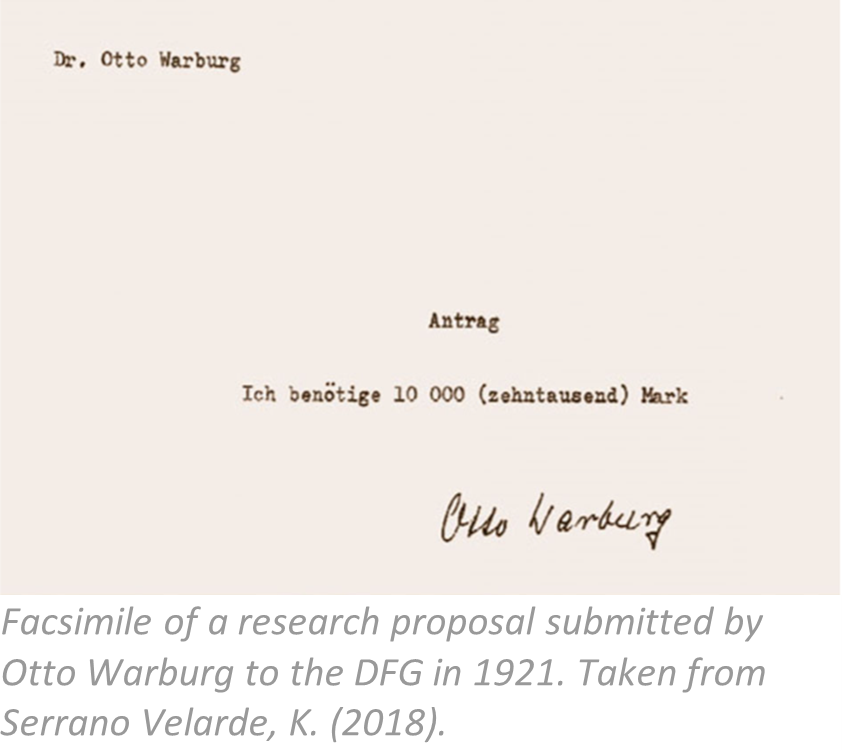The art of writing convincing proposals – an essential skill for the 21st century
15th July 2021 at 10:31 am

In 1921, Otto Warburg, a German physiologist and soon-to-be Nobel Prize winner, submitted a one-line grant application to the German Research Foundation, requesting 10,000 Deutsche Mark. It was fully funded. One century later, the institutionalisation of grant writing processes together with the ever-increasing competition among researchers made such “proposals” unthinkable.
Grant writing has become an essential activity in academia and beyond, whether it is for acquiring funding for research activities, increasing one’s status and/or bringing a product closer to the market. If you’ve been following our blog for a while, you might remember the competitiveness of EU funding opportunities that we highlighted in the post Why knowledge on funding opportunities can enhance your ESRs’ career perspective. After identifying the best funding opportunity, the challenge continues with putting novel ideas into well-structured proposals.
The art of convincing funding bodies through persuasive and compelling proposals is all the more important for early-stage researchers (ESRs) willing to progress in their career, be it in an academic or industry setting. Researchers preparing proposals for the first time are confronted with an exercise that has little in common with writing scientific papers and requires an additional set of skills.
Many ESRs involved in Innovative Training Networks, now referred to as Doctoral Networks, apply to the MSCA Postdoctoral Fellowship calls, to enjoy the freedom of conducting post-doctoral work in any area of research they wish to pursue, while receiving training and supervision at a chosen host institution and having the opportunity to relocate for secondments. In the last call for proposals, the success rate was of 14%. While this is just an example and the EU funding landscape offers many other opportunities, also with higher success rates, every type of funding scheme poses a challenge of its own.
In our interactive and online training module “Grant writing for EU funding”, we provide ESRs with the necessary knowledge and tips to write compelling proposals for a variety of funding schemes, within such a competitive environment. We notably cover the development of the scientific, impact and implementation sections, including efficient and effective budgeting.
Our team of grant writers, has condensed a combined 75 years of experience in EU funding programmes and a solid track record of successful proposals into a training module specifically designed to help ESRs take their research ideas the next step forward.
Do you already consider yourself an expert in EU grant writing? Test your knowledge with the quiz below.
Get in touch with us to discuss your options for training modules tailored to your needs.

Marco Cavallaro
Research & Innovation Project Manager

Jacqueline Strehler
Research & Innovation Project Manager
References
Serrano Velarde, K. The Way We Ask for Money… The Emergence and Institutionalization of Grant Writing Practices in Academia. Minerva 56, 85–107 (2018). https://doi.org/10.1007/s11024-018-9346-4

